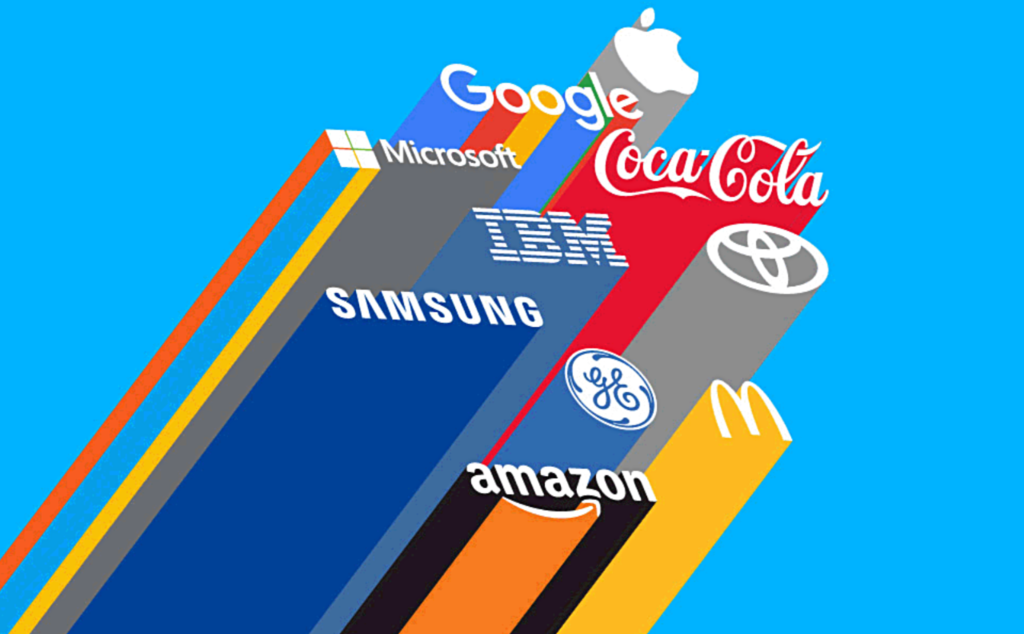Brand equity is a key factor in the success of any business. It is the value that customers associate with a brand and the positive or negative feelings they have towards it. These feelings can drive customers to purchase products or services from the brand, and can influence how the brand is perceived in the marketplace.
A strong brand equity can help a business stand out from its competitors and build customer loyalty. It also makes it easier for a business to introduce new products and services, as customers are more likely to be open to them if they already have a positive feeling towards the brand.
The purpose of this article is to discuss what brand equity is, why it matters, and how businesses can create and maintain strong brand equity. We will also provide some tips for building your own brand equity so you can stay ahead of your competition.
Defining Brand Equity

What is brand equity? Put simply, it’s the overall value of a brand—the emotional and tangible components that make a company and its products recognizable to consumers. It’s what sets a brand apart from its competitors, why customers prefer it over alternatives, and how it becomes associated with trust and loyalty.
This value is made up of various qualities like reputation, customer experience, design elements (logos, packaging, etc.), customer sentiment and more. Its intangible qualities come from factors like the consumer-brand relationship or the strength of the brand to influence consumer decisions.
For businesses that invest in building their brand equity through strategic marketing campaigns, customer service initiatives or offering unique product features, they can also expect to see real returns on their investment—increased sales, market share growth and pricing power to name a few. In short, when you invest in building your brand equity, you get an ROI that goes beyond financial rewards.
The Benefits of Brand Equity
Brand equity is an incredibly valuable asset for any business. It’s the knowledge and understanding that consumers have of a brand, which can be translated into loyalty, sales, and even advocacy. You can think of it like the collective of all the experiences and impressions you get from a brand—positive or negative.
The benefits of having strong brand equity are:
- Boosts customer loyalty – When customers have a good understanding and positive experience with a brand, they’re more likely to stick around than if they had a negative experience—or no knowledge whatsoever.
- Strengthens market position – Having strong brand equity you can charge higher prices for your products and services than competitors with weaker or unknown brands.
- Increases referrals – A positive view of your company will lead to people recommending it to their friends and family.
- Enhances visibility in crowded markets – Having strong brand equity will help your business stand out from other companies in the same space by building trust and credibility with potential customers before they’ve even seen your product or service.
Put simply, strong brand equity boosts customer relationships, strengthens market position and provides long-term competitive advantages for businesses, so it’s absolutely crucial for businesses to invest in building meaningful connections with their customers.
Measuring Brand Equity

Understanding the value of your brand is essential for your business, and one way to measure it is through brand equity. Simply put, brand equity is the positive or negative difference between the value that customers perceive from a product or service, compared to what they would receive if they were to purchase the same item from a competitor.
This difference in value can be seen in several ways:
- Brand Loyalty: Are customers loyal to your brand? Are they more likely to buy multiple times or recommend it to others?
- Brand Awareness: How recognizable is your brand? Are customers familiar with its messaging and associated symbols?
- Brand Perception: What do customers think about when they hear your brand name? Is it associated with quality, affordability, etc.?
- Brand Equity: Does your brand create a positive emotional connection with its consumers? Do customers trust it and have a strong affinity for it?
Measuring these factors can help you understand the strength and impact of your brand equity. This knowledge can then be used to identify areas of opportunity for improvement and help you optimize your marketing and communication efforts for greater success.
Different Types of Brand Equity
Brand equity is the value of a brand based on the perceived quality of a product or service and its reputation. It can be broken down into four distinct categories:
Awareness
This measure relates to how familiar customers are with the brand, if they recognize its name or logo, and if they can identify what product or service the brand offers. The more aware a customer is of a brand, the more likely it is that they will make an associated purchase.
Loyalty
This measure refers to how loyal customers are to the brand. This includes whether or not customers continue to purchase from a particular brand, and their willingness to recommend it to family and friends. Brand loyalty reflects customer satisfaction levels and can indicate potential longevity in terms of success.
Perceived Quality
This measure gages how positively customers view the quality of products or services offered bythebrand.Thebettertheperceived quality,themorelikely it is for customers to choose one brand over another when presented with similar choices.
Associations
This measure looks at how customers connect emotionally with a specificbrandorproductor service. This includes any associations such as cultural values, lifestyle aspirations or social values that customers may have developed with a particular brand.
Building and Managing a Strong Brand

Building a strong brand is paramount to creating a successful business. A strong brand means more than just a noteworthy logo or catchy slogan – it’s about creating an identity that customers connect with and trust, while also providing superior products and services.
Brand equity is the value of a brand and its associated assets, such as customer loyalty and recognition. While the exact definition of brand equity varies from company to company, it generally encompasses the following:
- Brand Awareness: How recognizable is your brand?
- Brand Association: What does your brand stand for?
- Brand Equity: What do customers think of your brand?
Managing a strong brand requires careful consideration of how each element will affect the perception of your product or service. The goal is to create an emotional connection between consumers and your business that encourages them to come back time after time. Ultimately, strong brand equity leads to long-term success by solidifying customer loyalty and loyalty from partners.
Using Brand Equity to Increase Profit Margin
Brand equity is a powerful tool that can be used to increase your profit margin. You can leverage brand equity to command a higher price for your product or service and to gain loyalty from customers.
Brand Awareness
The more people are aware of your brand, the more valuable it is. If your brand is well-recognized, customers will be more willing to pay extra for the product or service you provide as they trust that they are getting quality goods and services. It’s also important to make sure that your messaging is consistent across all marketing channels. This will help build a strong, recognizable presence in the marketplace.
Positive Image
By building a positive image for your brand, customers will be more likely to purchase from you and become return customers. You can achieve this by investing in customer service and creating quality content that speaks to the needs of your audience.
Loyal Customers
You can foster loyalty in customers by providing them with great value. This includes providing deals, rewards programs and discounts that show customers you care about their satisfaction. When customers are loyal to a brand, they become evangelists who will spread positive word of mouth about your business, increasing its visibility and strengthening its reputation in the market.
Conclusion
All in all, brand equity is a measure of the overall health and positive perception of a company’s brand. It is what sets a brand apart from its competitors and makes it unique. Brand equity is a key factor in driving success, as it enables a company to charge more for its products and services and build lasting relationships with customers. In order to maintain strong brand equity, companies must focus their efforts on developing a strong, consistent brand identity, delivering outstanding customer experiences and creating value for their customers. By creating a loyal customer base, companies can ensure that their brand equity remains strong in the eyes of their customers.

